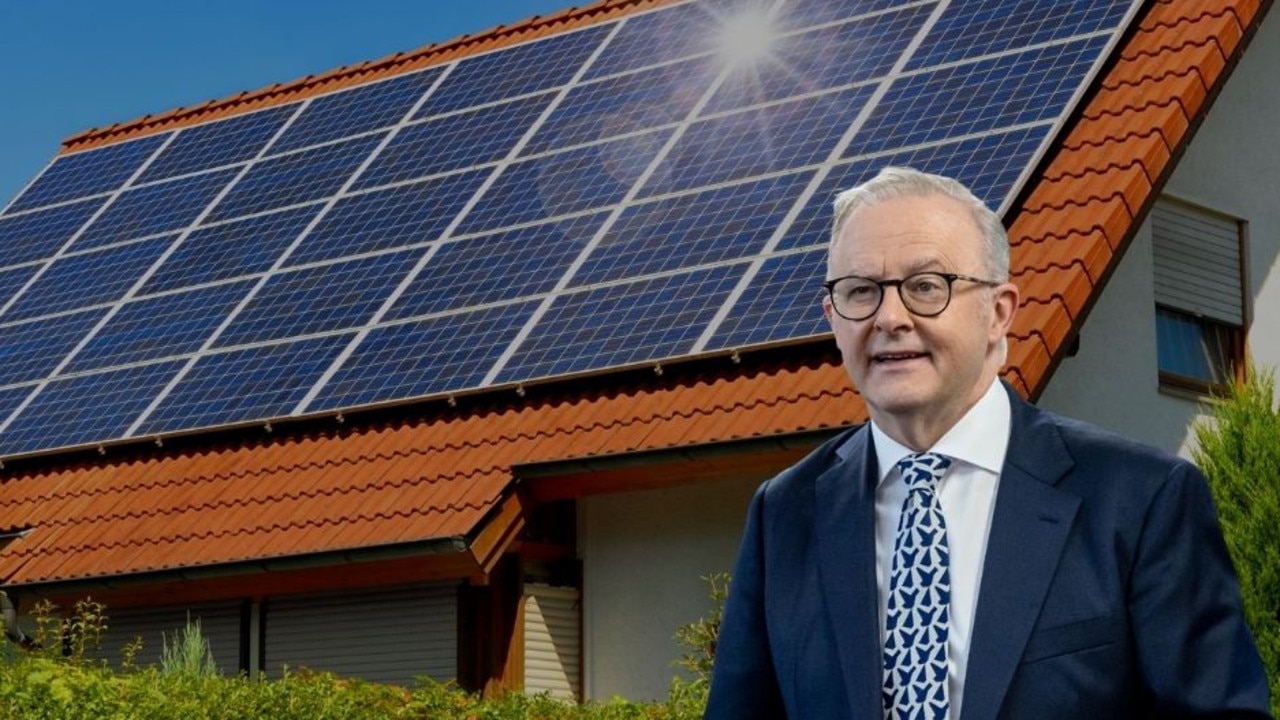NSW and Victoria lash Labor over $8.8bn cuts to infrastructure
The nation’s two most populous states have lashed the federal government after its mid-year budget economic update revealed a $8.8bn funding shortfall for road and rail projects over the next four years.

The nation’s two most populous states have lashed the federal government after its mid-year budget economic update revealed a $8.8bn funding shortfall for road and rail projects over the next four years, escalating Anthony Albanese’s growing tensions with state Labor premiers.
The Minns Labor government estimated the commonwealth’s cuts would leave the state $1.6bn worse off over the next four years, while Victorian Treasurer Tim Pallas accused the Albanese government of treating the state “with contempt”.
Labor revealed in its MYEFO that it would cut or delay federal spending on infrastructure by $8.8bn over four years, although Finance Minister Katy Gallagher quoted $7.4bn in the press conference on Wednesday.
The budget update also showed the states would receive nearly $3.7bn less in infrastructure payments over the forward estimates.
Following the release of a review into Labor’s capital works program, federal Infrastructure Minister Catherine King repeatedly promised no states would be worse off under the new plan.
Vowing to fight against the proposed infrastructure cuts, Mr Pallas said the move was a “slap in the face” after it had worked closely with the commonwealth to address cost blow-outs in healthcare and disability services during national cabinet.
“Victoria has been a stand-up national citizen and helped out the commonwealth in very substantial ways – and this budget update is a total slap in the face,” he said.
“The commonwealth is treating Victoria with contempt, and we won’t take it lying down.
“We’ll fight for what’s fair because that’s what Victorians expect.”
Mr Pallas said the federal government was wrong in claiming no states would be worse off under the infrastructure shake-up.
“Victorians have been burnt by the Albanese government in a summer shocker released under the guise of a run-of-the-mill budget update,” he said.
Analysis conducted by the state found its total infrastructure funding had dropped to 19.2 per cent over five years, down from 23.5 per cent at the May budget.
The state government found Victoria would get less than 1 per cent of the national total infrastructure spend, with $101m guaranteed for capital works projects.
NSW Treasurer Daniel Mookhey said NSW communities would be left worse off and would miss out on critical infrastructure projects promised to them.
The Minns government’s half-yearly budget review, due on Thursday, was also set to pinpoint high inflation and bond yields for pressure on this financial year’s deterioration.
Mr Mookhey said the nation’s most populous state was doing “more than its fair share to absorb the federal government’s population policy” and he expected the commonwealth to return all capital works funds back to the state.
“The majority of the federal government savings comes at the expense of infrastructure money for communities in NSW,” Mr Mookhey said.
“The reality is, there’s going to be many communities in NSW that won’t be getting the infrastructure that was promised to them as a result of the federal government’s decisions.
“We are at the table with the federal government, and we expect the federal government to return those infrastructure dollars to NSW so we can get on with building the roads, the schools, the paramedic stations, that the people of NSW expect to be built.”
The fury comes after state Labor premiers earlier this month attacked Ms King for axing 50 infrastructure projects including the Great Western Highway upgrade in NSW, Queensland’s Sunshine Coast rail link and Victoria’s Geelong Fast Rail.
Half of these projects were in Liberal/ Nationals held seats while just nine Labor-held electorates had funding reduced for road and rail projects.
Nationals leader David Littleproud accused Labor of “bleeding regional Australia dry”.
“Labor has happily banked the billions of dollars in revenue from the regions’ resources and agriculture industries, but now plans to cut regional infrastructure and drought programs even further, to give them a better bottom line,” Mr Littleproud said.
Ms King declined to comment.



To join the conversation, please log in. Don't have an account? Register
Join the conversation, you are commenting as Logout